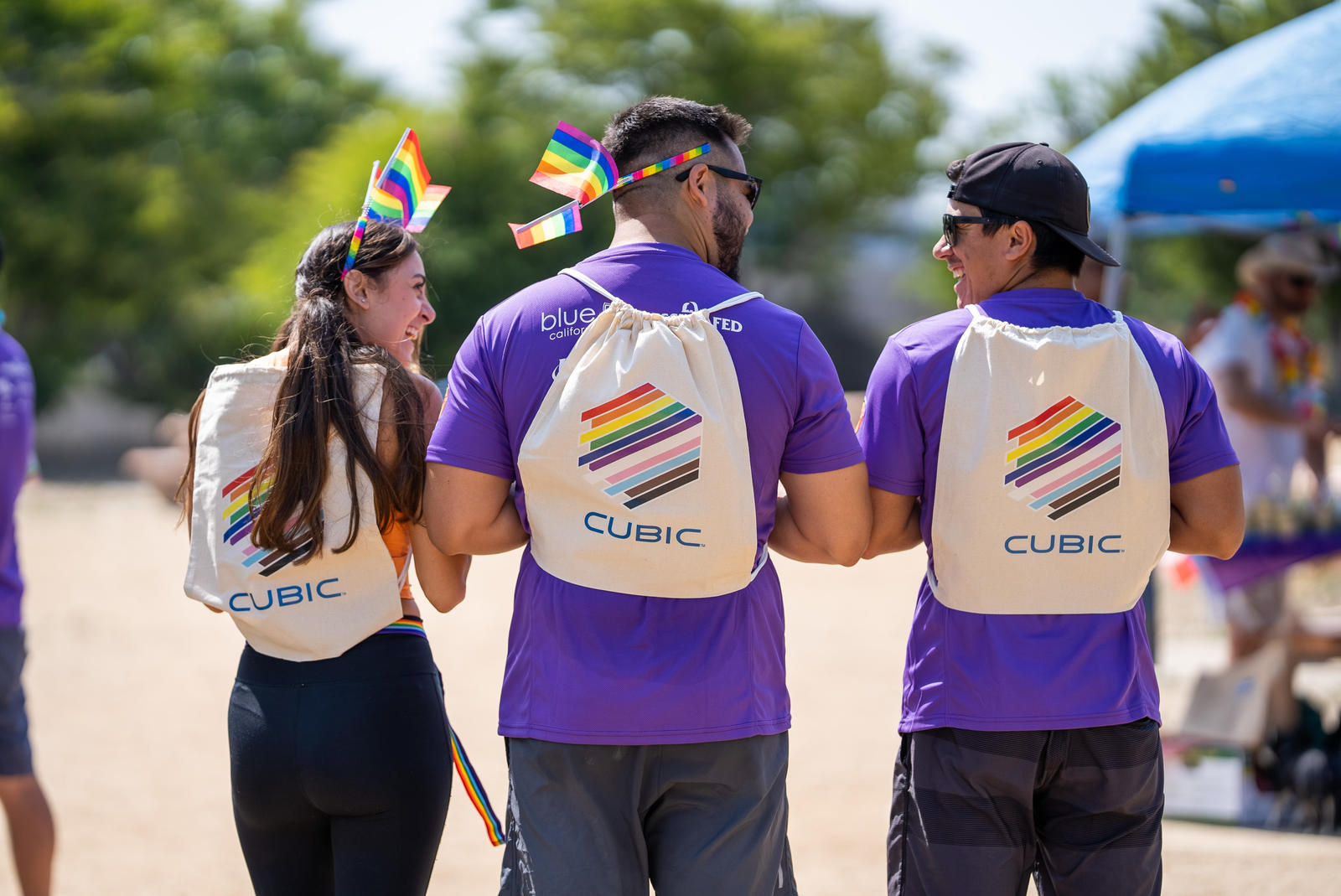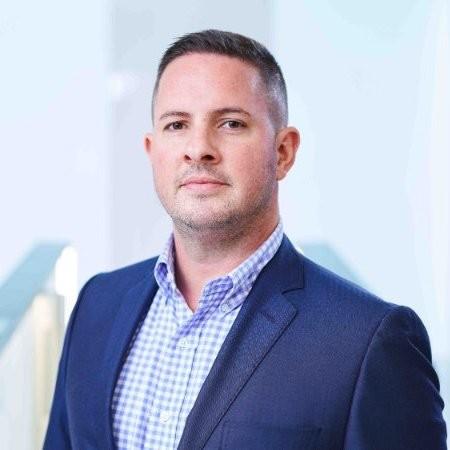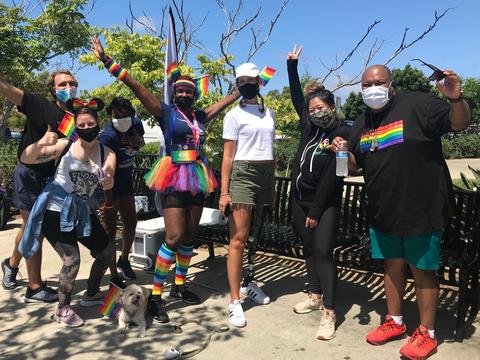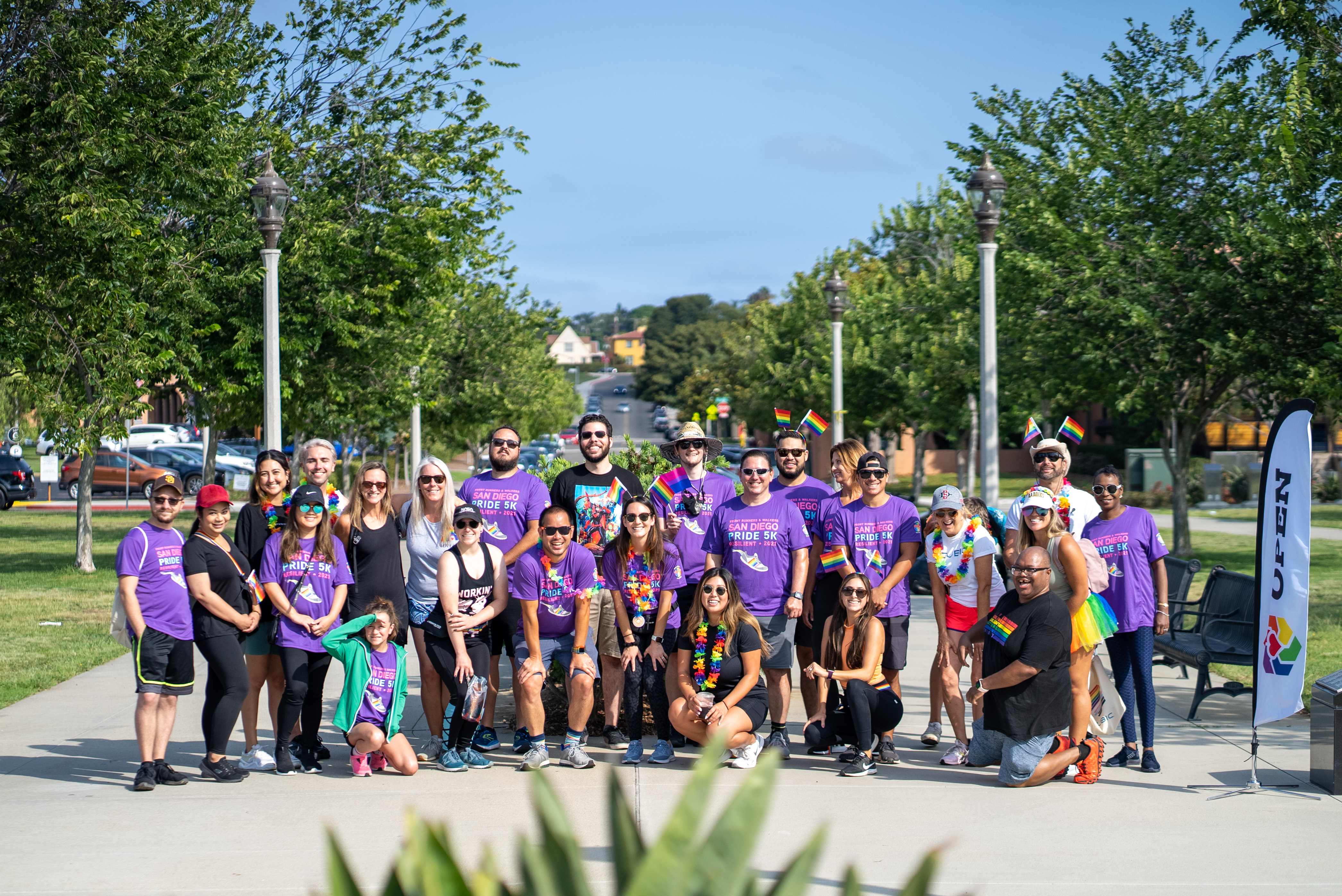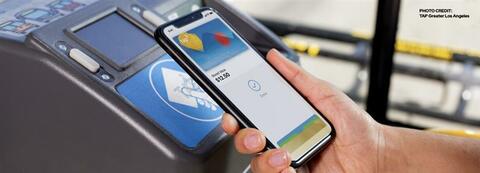Dear Straight Folks – please keep reading, this one’s for you.
Each year in June, the topic of Pride comes around, and we see a rainbow-washing of our world. From social media to corporate logos, the spotlight is focused on the LGBTQ+ community and the progress that has been made but also the struggles still facing us, underscoring the need for progress and acceptance that still exists.
Like all minorities, the community that identifies as LGBTQ+ needs the active support of the wider society to help progress along our path to being accepted and included in all parts of life. In the workplace, there’s evidence to suggest that the almost 50% of employees who don’t feel comfortable to come out might be doing themselves a disservice in terms of career progression, so how can we help to create environments where people can thrive by coming to work as their authentic selves?
Having Active Allies in the workplace can serve to reduce the uncertainty of acceptance and help foster a culture of belonging where all employees, especially historically marginalized LGBTQ+ community members, can thrive.
Coming-Out – All Over Again
When someone has chosen to come out as LGBTQ+, it can be a daunting time and involves a lot of angst and reflection on the real-world benefits to oneself from a mental health and societal perspective. In the workplace, coming out can lead to slightly different challenges for LGBTQ+ employees, and they feel the process continually starts over. While coming out should always be a choice, we can make that slightly easier by demonstrating that Allies exist in the workplace and have taken steps to reduce the perceived barriers.
Having worked for almost 20 years in various corporate roles, I’ve found that this process of continually coming out can be exhausting and often feels like a hassle. From the awkward “I have a gay cousin…” to the “You don’t seem gay” responses, it sometimes feels like the easy route is avoidance.
Over the years, I’ve masked partner pronouns to keep conversations flowing and reduce the likelihood of awkwardness. I’ve ignored microaggressions that made me uncomfortable, and I’ve conditioned myself to share only the parts of my life which I know straight colleagues won’t find discomforting. I’ve had to navigate social settings and the feeling of not fitting into the heteronormative corporate culture.
I’m not proud of any of these personal reactions, but I’ve found myself looking for ways to make others feel more comfortable by not always putting my true self in front of them.
What has made a difference is when there have been instances of visible allyship in the workplace. When policies are focused on inclusion with belonging being the objective, it can help to create environments that give LGBTQ+ team members the space to be as open as their heterosexual or cisgender counterparts, equally.
Straight Folks - Are you still there?
While Diversity and Inclusion now features in most corporate value statements, there are some concrete steps you can take to become an Active Ally to your LGBTQ+ colleagues.
- Speak Up to Microaggressions
When you hear or see something that doesn’t sit right, speak up and call out the behaviour. Microaggressions are a good place to start – these often seemingly innocent statements can reinforce heterosexism and make your LGBTQ+ colleagues feel excluded or devalued.
Some examples could be “Do you have a wife?” or “You don’t look gay”.
While many of us will speak up and correct the microaggression, we’d love some help from Active Allies. Don’t assume everyone is heterosexual. When asking questions, try using gender-neutral pronouns if you’re unsure. Avoid making someone uncomfortable by asking if they have a of a particular gender, instead, consider using a gender-neutral term like “Partner”. Also, don’t assume that telling someone they don’t “look” gay is the compliment you might think it is.
-
Be Curious and Willing to Learn
Are you afraid you might offend someone because you don’t understand LGBTQ+ issues? Becoming an Ally could mean taking steps to educate yourself in the areas you’re unfamiliar with by doing your own research and reaching out to those who feel comfortable talking about the subject.
In the corporate environment, we know that self-development is important, so why not start on the path to being an Active Ally by seeking information about LGBTQ+ issues so you can help to amplify the messages of inclusion.
- Seek Diverse Perspectives
As an Active Ally, think how you can include LGBTQ+ opinions in your organisation and foster a culture in which all employees have a valued voice. By opening ourselves to diverse thought and listening to those who have a different lived experience, we demonstrate strength and understanding while also broadening our organisational knowledge base.
If you need motivation to drive this change, it’s no secret that diverse workplaces have been proven to not only foster higher engagement but also outperform those that are less diverse.
- Becoming an Ally
If you’re still reading, I hope you’re thinking about what steps you can take to become an Active Ally. It might not be easy, but it is important. It’s estimated that roughly half of LGBTQ+ people are not out in their workplace, and almost 50% have experienced discrimination in their personal lives and where they work.
For those thinking “this isn’t about me” – think again. To impact change and create workplaces that foster belonging, not just diversity and inclusion, we need voices and acts of support from outside of our LGBTQ+ community.
I’ve personally found, since joining a diverse team who role model what it means to be an Active Ally, it helps all members to feel comfortable sharing their lived experiences. When colleagues feel safe sharing experiences and vulnerabilities, it can lead to deeper connection and a sense of belonging, which benefits the whole team and the business! Organisations with increased belonging have higher employee engagement and lower turnover leading to improved financial metrics, but more importantly, it means all team members feel as though they are being treated equally.
Helping everyone feel valued and included in the workplace is going to be a long journey, and there are many paths to success - including those mentioned above. The first step for many is recognizing that something needs to be fixed and becoming an Ally is a way to help.
There are many great resources available on this subject and I’d highly recommend taking the time to check out a few of them below:
- 2020 Straight Ally Guide PDF
- Being an Ally to LGBT People
- How Microaggressions Affect the LGBTQ+ Community
